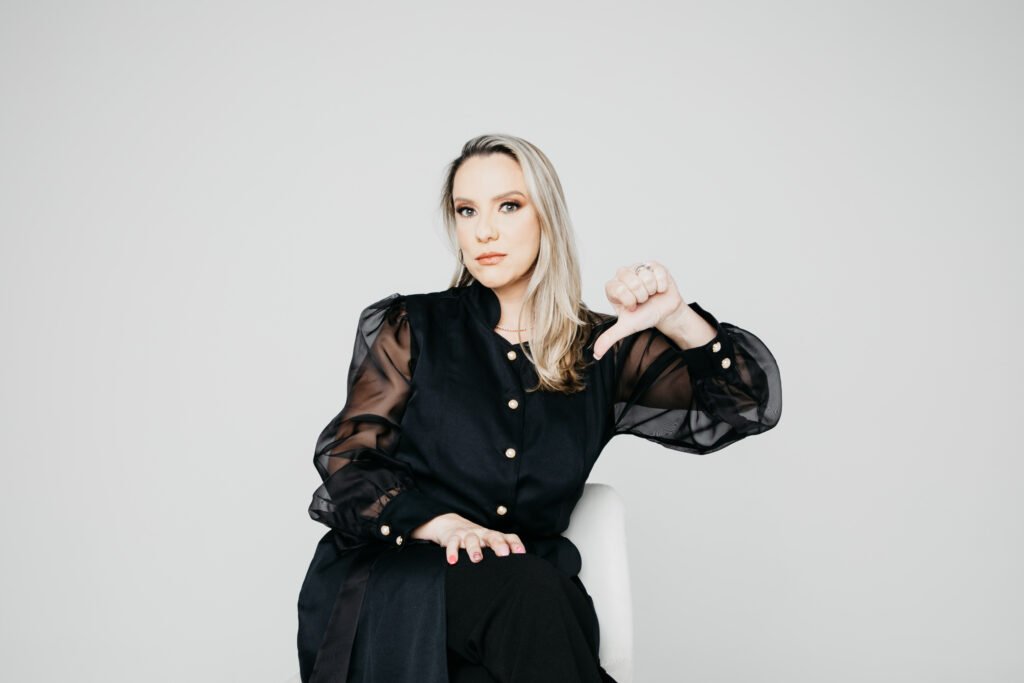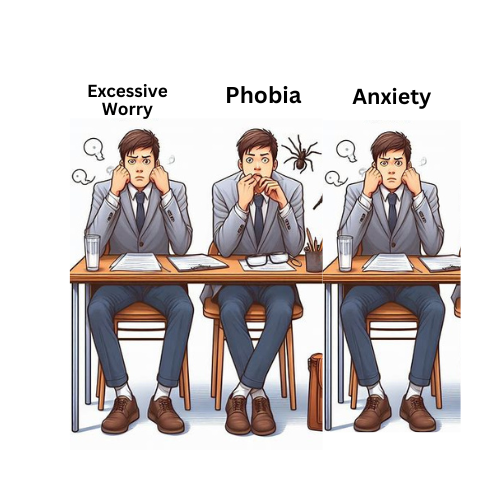Did You Know?
Anxiety disorders are the most common mental illness in the U.S., affecting 40 million adults (19.1% of the population) aged 18 and older every year. Despite being highly treatable, only 36.9% of those suffering receive treatment. People with anxiety disorders are 3-5 times more likely to visit a doctor and 6 times more likely to be hospitalized for psychiatric disorders than those without anxiety disorders.

Why Is Anxiety On the Rise?
Life today can be pretty stressful. With work demands, social pressures, financial worries, and the constant buzz of digital media, it’s no wonder anxiety is on the rise. The COVID-19 pandemic has only added to these stresses, increasing concerns about health and the future. Recognizing the signs of anxiety is crucial for seeking help. Key indicators include constant worry or fear, avoiding anxiety-inducing activities, difficulty concentrating, irritability, restlessness, and physical symptoms like headaches, muscle tension, or stomach aches.
Are there different types of anxiety disorders?

Yes, anxiety comes in different forms. The three most common types are:
- Generalized Anxiety Disorder (GAD): Excessive worry about everyday concerns, often out of proportion to the actual issues.
- Specific Phobia: Intense fear of a particular object or situation, like spiders or flying.
- Social Anxiety Disorder: Severe anxiety in social situations, such as meeting new people or speaking in public.
Facts and Statistics
Generalized Anxiety Disorder (GAD)
- GAD affects 6.8 million adults or 3.1% of the U.S. population, yet only 43.2% are receiving treatment.
- Women are twice as likely to be affected as men. GAD often co-occurs with major depression.
Panic Disorder (PD)
- PD affects 6 million adults or 2.7% of the U.S. population.
- Women are twice as likely to be affected as men.
Social Anxiety Disorder (SAD)
- SAD affects 15 million adults or 7.1% of the U.S. population.
- SAD is equally common among men and women and typically begins around age 13. According to a 2007 ADAA survey, 36% of people with social anxiety disorder report experiencing symptoms for 10 or more years before seeking help.
Specific Phobias
- Specific phobias affect 19.3 million adults or 9.1% of the U.S. population.
- Women are twice as likely to be affected than men.
- Symptoms typically begin in childhood; the average age of onset is 7 years old.
Obsessive-Compulsive Disorder (OCD)
- OCD affects 2.5 million adults or 1.2% of the U.S. population.
- Women are 3 times more likely to be affected than men.
- The average age of onset is 19, with 25% of cases occurring by age 14. One-third of affected adults first experienced symptoms in childhood.
Post-traumatic Stress Disorder (PTSD)
- PTSD affects 7.7 million adults or 3.6% of the U.S. population.
- Women are 5 times more likely to be affected than men.
- Rape is the most likely trigger of PTSD: 65% of men and 45.9% of women who are raped will develop the disorder.
- Childhood sexual abuse is a strong predictor of the lifetime likelihood of developing PTSD.
What Causes Anxiety?
Anxiety can be caused by genetics, brain chemistry imbalances, stressful or traumatic life experiences, and certain health issues. Factors that make people more vulnerable to anxiety include sensitive or perfectionist personality traits, early life stress, chronic stress from various aspects of life, and substance abuse.
What other symptoms can people experience with anxiety ?
Worry, Fear, Nausea, Stomach aches, Irritability, Loss of appetite, Difficulty Sleeping, Headaches, Body aches, Panic attacks, shortness of breath, dizziness, sweating, and chest pain.
How is anxiety treated? At Brain Health Psychiatry, we create a treatment plan just for you. We offer:

- Medication Management : which involves assessing the patient’s medical history, prescribing appropriate medications, educating the patient about their use, monitoring effectiveness and side effects, adjusting dosages as needed.
- Telemedicine Treatment : telehealth services so you can get the care you need without leaving your home.
- Accelerated Resolution Therapy: which uses a combination of relaxation techniques and rapid eye movements to help a person process troubling memories or emotions.
Take control of your anxiety with the compassionate care at Brain Health Psychiatry. Call us or book an appointment online today.
We’re here to help. You’re not alone in this journey.
Call us at: 954-694-7292